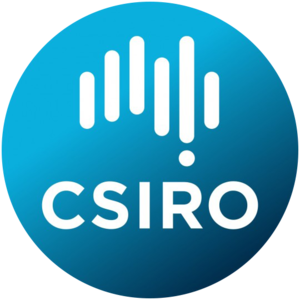This short course is presented by Dennis Forte & Associates in cooperation with the CSIRO’s Food Innovation Centre. This course is organised through CSIRO, full information & registration details available here.
Overview
Drying is one of the most frequently used operations across the food processing sector and is critical to the safety, quality and functionality of many food products and ingredients. However, it is one of the most energy-intensive processes and is often poorly understood and inefficient.
This course aims to give participants an understanding of drying technologies commonly used across the food industry and how we can improve current processes and products, and design/select new systems that are safe, effective and efficient. The program combines the practical experience and in-depth technical knowledge of industry professionals and CSIRO. It was first run at Werrribee in March 2016, and received very positive feedback from participants.
On day 1 we present basic drying theory, and how the theory relates to practical application and systems currently used in the food industry. We go on to discuss water activity in foods and how it relates to both the quality/preservation of products and the efficiency of the drying process. Principles of psychrometrics will be combined with heat and mass balance techniques to analyse design and drying processes, demonstrated using practical examples.
On day 2 we explain more advanced drying concepts, using case studies to demonstrate how drying curves can be modeled and predicted based on real data. Quality issues in dried products will also be discussed in more detail, and case studies presented to show how a range of drying processes can be improved.
Spray Drying Option at the Werribee Course
While the basic principles apply to all drying processes, including spray drying, there are specialised aspects unique to spray drying technology. At the course in Werribee, an optional session on spray drying (in parallel with other topics) will be offered.
Sponsor
Day 1 of this course is sponsored by Buhler, day 2 by Clextral. We appreciate support/sponsorship from companies involved in providing equipment and services relevant to food extrusion operations.
Registration Fee
$1600 per person (+GST) full registration, $1400 (+ GST) earlybird rate.
10% discount for AIFST members.
Earlybird discount available until 21 January.
Registrations will close 21 February 2022.
Register via the CSIRO Drying Course Page.
Venue
CSIRO Food & Nutrition Flagship
671 Sneydes Road
Werribee, VIC
Australia
Note that, in accordance with CSIRO site policy, participants must be fully vaccinated against Covid-19
Further Information & Enquiries
Visit our Contact page.
Extrusion training can also be offered to companies on-site at their facility, at a level suitable for operators, or for technical staff.
Course Presenters
Dennis Forte of Dennis Forte & Associates is a chemical engineer with extensive experience with multi-national and smaller private food and feed manufacturers. He has worked in drying systems across food, feed, and other industrial systems, often associated with extrusion processes.
Gordon Young of Food Industry Engineering is a food process engineer who has worked in drying technology in University and research sectors, as well as with private companies. He has designed, specified, and improved industrial drying processes in areas as diverse as fluidised bed systems for tea, a belt dryer for whole root ginger, heat pump and other drying systems for fruit, and belt drying systems for a range of other products including pet and aquafeeds.
Dr Henry Sabarez is a Principal Research Scientist at CSIRO with extensive experience in food drying. He is a specialist in heat & mass transfer, fluid dynamics modelling and computer simulation, process design, development and optimisation. Henry's research on the drying of fruits, vegetables and meat products focusses on the integrated application of novel technologies such as ultrasonics and electromagnetic waves with view to minimising energy use, increasing product quality and the efficiency of the drying process.
Darren Gardiner is Food Manufacturing Team Leader at CSIRO and is responsible for leading the CSIRO’s pilot plant operations and food manufacturing capability. He has worked in the dairy industry for over 20 years with more than 10 years in research and development with particular experience in powder technology. Darren has a Bachelor of Science from RMIT and a diploma in Dairy Technology from the University of Melbourne.
Join our mailing list
For information on extrusion related courses please subscribe to our mailing list, now managed by Dennis Forte & Associates.





